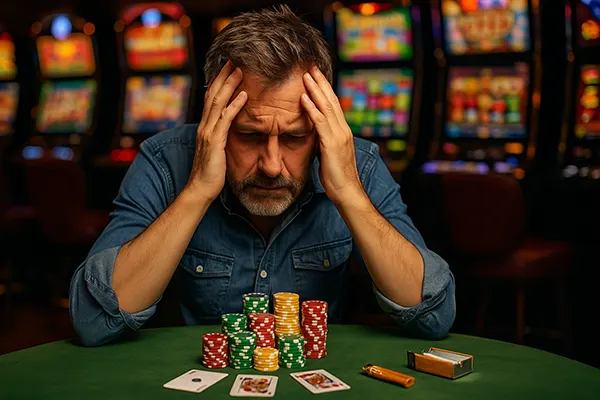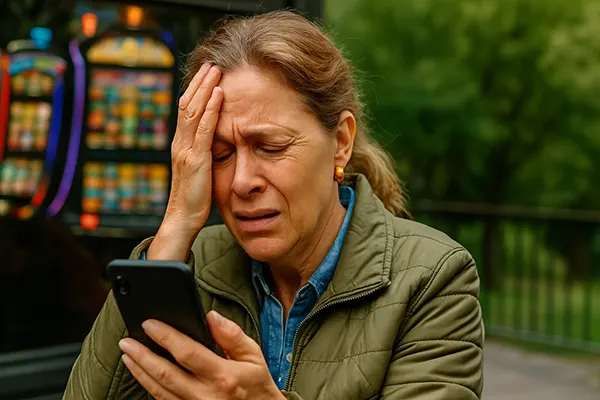
Life Stories “Before and After”: How Gambling Changed People’s Destinies
Behind the numbers, strategies, and statistics, gambling often carries a human cost that is rarely highlighted. While some perceive it as harmless entertainment, for others it becomes a turning point that reshapes lives in dramatic ways. Real-life stories of individuals who entered gambling, faced crises, and later sought recovery offer an essential reminder of the risks and the possibilities of change. These testimonies provide insight into psychology, consequences, and recovery paths that remain relevant in 2025, when gambling continues to be widespread and accessible worldwide.
The First Steps into Gambling
Many people who struggle with gambling problems recall their entry point as seemingly harmless. Often it begins with small bets, occasional visits to gaming halls, or casual online play. For young adults, curiosity and the influence of friends can play a major role, while for older players it may start with seeking distraction from stress or financial worries. In every case, the early stages often appear controlled and unthreatening.
Over time, excitement gradually transforms into dependency. The initial thrill fades, yet players begin chasing earlier sensations of winning or relief. Studies show that the brain’s reward system reinforces risky behaviour, making people believe they can regain losses through persistence. This psychological trap marks the start of a downward spiral.
Interviews with individuals who faced gambling addiction reveal a common pattern: a lack of awareness of the danger during the early stage. Most never thought a hobby could lead to loss of financial stability, damaged relationships, or long-term stress. The step from entertainment to obsession is subtle, but highly impactful.
Crisis Points and Breaking Moments
For many, the turning point arrives abruptly — an empty bank account, escalating debts, or the discovery of the addiction by family members. Such crises often carry a sense of shame and desperation. The realisation that gambling has overtaken everyday life brings both fear and urgency. Some individuals admit to hiding their problem for years before a dramatic event forced them to confront it.
Psychologists emphasise that these breaking moments can either deepen the problem or create motivation for change. Unfortunately, without immediate support, many people sink further into risky behaviour. In 2025, online gambling accessibility increases the likelihood of silent escalation, as losses can accumulate quickly and privately.
Nevertheless, stories of people who reached rock bottom highlight that recovery is possible. Recognising the addiction and admitting the scale of harm is often the first and most difficult step. From that point, paths toward rehabilitation begin to unfold.
Finding a Way Back to Balance
Recovery from gambling addiction is neither simple nor quick. It often requires structured therapy, financial planning, and ongoing emotional support. Programmes such as cognitive-behavioural therapy (CBT) have proven effective, helping individuals recognise harmful patterns and replace them with healthier coping mechanisms. In many European countries, dedicated support lines and treatment centres offer guidance for those seeking help.
Family and community play a crucial role in rebuilding stability. Many recovering individuals emphasise how important it is to regain trust from loved ones. Transparency in finances, accountability, and consistent support create a foundation for long-term recovery. Without social backing, relapse risks remain high.
Digital tools introduced in 2025 also assist recovery. Self-exclusion systems, spending limits, and specialised apps that track behaviour help people regain control. These measures, combined with professional therapy, make it possible for many to return to a healthier lifestyle, though the journey remains ongoing and demanding.
Lessons from Survivors
Stories from those who overcame gambling struggles provide valuable guidance for others. They highlight that early recognition is critical: acknowledging risky behaviour before it escalates saves both money and mental health. Survivors often stress that gambling is not a solution to stress or financial problems — instead, it creates deeper difficulties.
Another lesson is the importance of seeking professional support rather than relying on willpower alone. Trained specialists provide strategies tailored to individual needs, addressing both psychological triggers and financial management. Survivors agree that counselling offers perspectives impossible to achieve alone.
Finally, resilience and patience stand out as essential. Recovery is rarely linear, and setbacks occur. However, every step towards control strengthens self-awareness. Those who successfully rebuilt their lives often become advocates, helping others avoid the same path of destruction.

Practical Advice for Readers
Prevention remains the most effective way to protect oneself from gambling-related harm. Setting clear personal boundaries before engaging with gambling is a fundamental step. Establishing strict budgets, avoiding credit play, and treating gambling only as entertainment are vital measures. Once limits are crossed, risks multiply rapidly.
It is equally important to be aware of psychological triggers. Stress, loneliness, and financial hardship often drive people towards gambling as a form of escape. Recognising these warning signs and seeking alternative coping strategies such as physical activity, social support, or creative hobbies reduces exposure to harm. Awareness is a powerful protective tool.
For families and friends, early intervention can make a difference. Addressing unusual spending, secrecy, or sudden emotional changes in a loved one may prevent escalation. Compassionate dialogue, combined with offering resources for professional help, can redirect individuals before they reach crisis points.
Protecting the Future
In 2025, gambling remains widely available, but society is also more informed about its dangers. Governments, health organisations, and communities continue to develop safeguards that help individuals manage risks. Public campaigns focus on reducing stigma and encouraging people to seek help without fear.
For readers, the responsibility is twofold: protect oneself and support others. Sharing knowledge about risks, staying informed about responsible gambling tools, and encouraging open discussions all contribute to reducing harm. By addressing the issue collectively, society builds resilience against the destructive effects of addiction.
Life stories remind us that gambling can reshape destinies — both in destructive and restorative ways. Awareness, support, and informed choices are the key factors that define whether the outcome becomes a cautionary tale or a story of recovery and growth.
